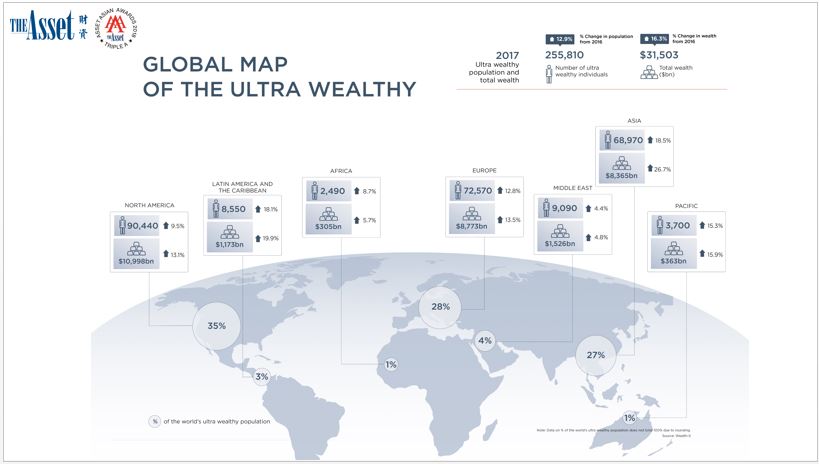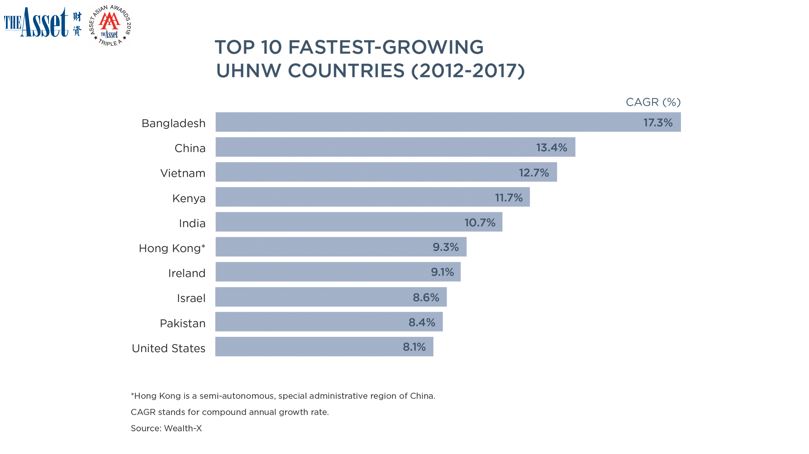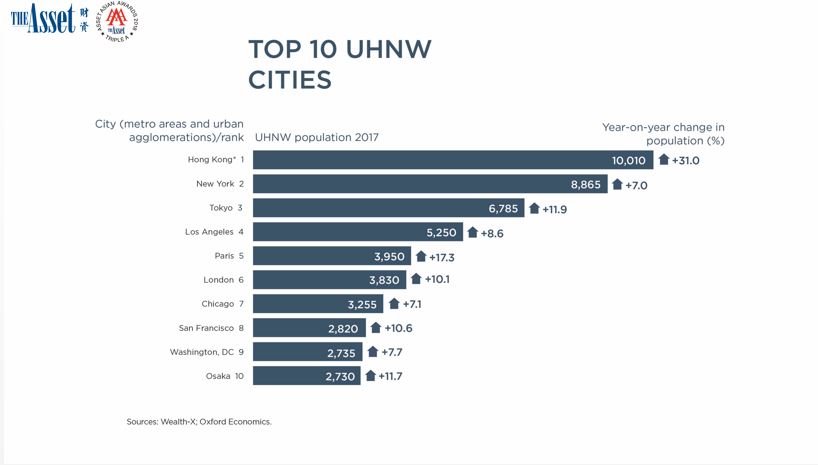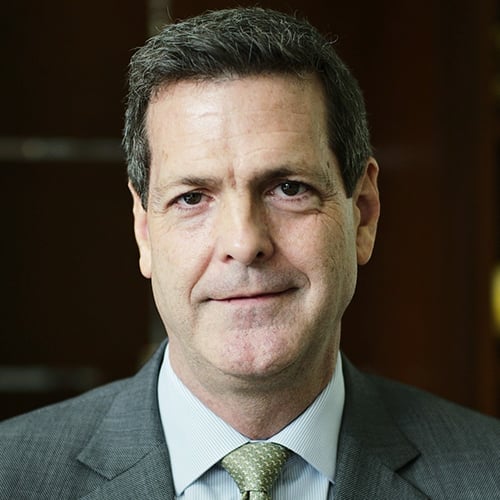TWENTY seventeen was a good year to be in private banking, wealth management, investment solutions and ETFs. Latest survey by Wealth X, which came out just a few weeks ago, confirms the strong wealth accumulation momentum in Asia.
The region is producing more ultra-high net worth individuals – a threshold of wealth of at least $30 million in liquid financial assets as defined by Merrill Lynch – than any other region in the world; ultra-high net worth wealth in Asia, at US$8.37 trillion at the end of 2017, account for 27% of the global total; one in four ultra-high net worth individuals in the world comes from Asia; more than half of the top ten fastest growing ultra-high net worth countries over the past five years are in Asia. Who knows, the person seated next to you may be one of them!
Coincidentally, one of the biggest blockbuster films to come out of Hollywood this summer is a movie called Crazy Rich Asians, which has grossed some US$165 million.
When the board of editors met with you as part of the awards assessment process, we also heard the good news – assets under management continued on its upward trajectory. More importantly, this growth was on the back of not just market movement but net new money from existing or newly minted high net worth clients.
The region's rising affluence, however, is also coming at a time when income disparity in the region has widened. From China to India and parts in-between, we are witnessing wealth being accumulated at the top at a much faster pace than anywhere across the social strata. The richest 1% generated anywhere from 73% to 90% of the wealth created in 2017, according to a report by Oxfam International.
In Hong Kong, it is telling that while the territory has overtaken New York to become the world's largest ultra-high net worth city in 2017, the number of locals leaving Hong Kong for other countries hit a five-year high of about 24,300 in 2017, government data shows. Many cite the high cost and work/life imbalance and are opting out, moving to places such as Canada, Australia, New Zealand and even Taiwan, which saw a 50% increase in the past five years.
The disparity between the rich and the rest, however, is also coming at a time when as new wealth is being minted, the traditional and established wealth in Asia is undergoing a transition to the next generation. This confluence of events is spurring a rethink of how the vast wealth generated is to be reinvested; while philanthropy has been one activity that many today engage in, another area that has drawn considerable attention is impact investing.
A recent report by the Global Impact Investing Network notes that the Asia-Pacific was the fastest growing market globally over the past five years for impact investing. For a small but growing number of nextgen high net worth individuals, it is no longer simply investing in another real estate or private equity opportunity in London or New York, they also want to participate in investments that contribute and generate a positive social and environmental impact perhaps closer to home, in addition to generating a financial return.
Why this tribe of investors is likely to grow is because this kind of investing goes to the heart of what nextgen is all about – challenging convention, being disruptive, tech native and applying these to create a reimagined business model that paves the way for tackling issues such as climate change and fostering an inclusive future.
It is early days for sure. There are a number of real-world obstacles facing increased activity by the nextgen high-net worth into impact investing. Among them: the lack of organized vehicles where funds can be deployed, lack of data, as well as issues of corporate governance and rule of law in some countries.
There is also a growing need for education and culture change even among investment advisers, especially in dispelling the notion that impact investing is synonymous to philanthropy. Indeed, a number of social enterprise undertakings have become successful by adopting technology breaking away from traditional business models, enabling them to achieve consistent double-digit returns.
With the sell-off in emerging markets since the beginning of this year, which has hurt investment portfolios, and as we mark the 10th anniversary of the collapse of Lehman Brothers this week, we can also look at impact investing another way: it is about shunning the crowded trades; correlated risks and to be able to identify and participate in one-of-a-kind investment opportunities.
As we look to The Asset Triple A Awards for Private Banking, Wealth Management, Investment and ETFs in 2019, which will also mark the 20th anniversary of The Asset, we hope the winners will be defined by the noblest of standards, not just based on performance metrics of growth in assets under management or net new money and the like, which is to be expected in a region that will likely continue to lead in wealth accumulation, another basis could also be crafting investment advice that goes beyond generating a mathematical alpha.
In doing so, if it also goes some ways to redress the widening income gap and enable more inclusive growth, that's good to know. But more crucially, it aligns with how wealth management will be defined in the future. Look at it another way, it engenders a different kind of wealth accumulation – that which comes from making an impact in the lives of others, helping to create opportunities and cultivating a sense of deeper purpose.
For the nextgen high net worth, this sense of well-being creates intangible values that are longer lasting than what probably they will ever own. It also presents a counterpoint to the stereotypical narrative portrayed in the movie Crazy Rich Asians that outside of Hollywood, there are Conscious Rich Asians who are connecting with the critical social issues of the day.











